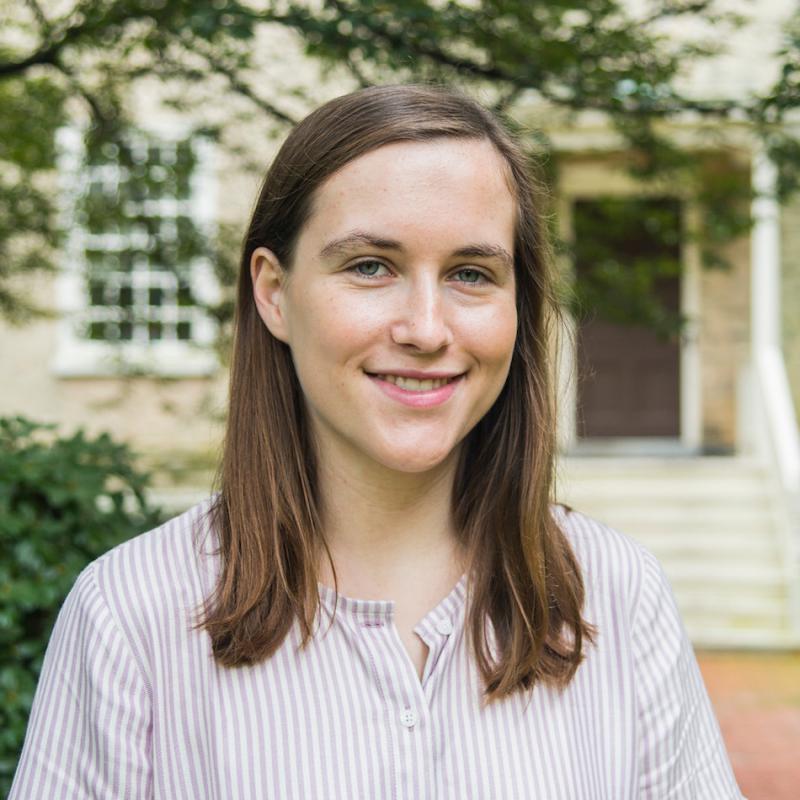Computer Science
Economics

What was your favorite class and how has it influenced your further course of study?
My favorite class was my first-year writing seminar, “Ecological Imaginaries: Identity, Violence, and Nature,” taught by Prof John Hyland (who has unfortunately since left Haverford). This class really opened my eyes to the ways that typical imaginings of nature are incredibly biased and taught me how to engage with literature at a higher level than I ever had before. In addition, both sections of this class collaborated on an archival research project with Quaker and Special Collections (which you can check out here: http://ds.haverford.edu/brokentreaties/). This project was my first-ever experience working with archival materials and inspired me to apply for the computer science/history internship I had with the library the following summer!
Why did you choose your major/minor/concentration? What influenced you to pursue this course of study?
In high school I participated in the Girls Who Code summer program, which is a seven-week coding class for female high school students interested in technology. This program taught me the basics of coding and left me very curious to learn more about computer science at a college level. I took a couple of economics classes in high school and was very involved in my school’s DECA business club, so adding an economics minor was a natural fit. I’m finding that the two disciplines go very well together-- for my economics minor, I’ve had to learn statistics software that’s similar to some programming languages, and for my computer science major I am learning the skills which will help me build applications to analyze and address some of the issues my economics classes bring up.
Did you have a summer experience (research, internship, travel) that was connected to your classwork or thesis project? If so, how did that experience change what you thought about your course of study or influence your plans for the future?
Yes! After my freshman year, I worked as a data visualization intern with the library’s Digital Scholarship department. There, I was able to learn a whole lot of new computer science skills/languages/frameworks while adding to a website about a huge medical archive in Quaker and Special Collections. This experience was an excellent way for me to develop my computer science skills while taking advantage of the wonderful resources that the library and history departments offer. This summer, following my second year at Haverford, I am interning at a large financial services company. It’s certainly a change of pace from last summer, and I miss all of the archival research, but I have been surprised to experience the ways in which the very theoretical Haverford CS coursework is actually quite applicable in a business setting.
What surprised you most about your course of study or what would others be most surprised by about your course of study?
When I was applying to colleges I knew I wanted to go to a liberal arts school, but was a bit unsure about what STEM classes at a college without an engineering school would look like. So far, I have been most surprised to find just how beneficial it has been to me to learn computer science at a school like Haverford. In some computer science classes, professors schedule weekly meetings with each student to individually grade lab assignments. This way, students can learn from their feedback and explain their thinking with the professor rather than having just a score handed out weeks later. As part of the math class I took last semester, there was a required hour-long problem-solving/discussion session which ended up being the most engaging and challenging way I’ve ever learned math. And whether it’s the open lab hours in Hilles 110 or the nightly Math Question Center, student TAs and my own classmates create an incredibly supportive learning environment for all of my STEM classes.
What do you hope to do after graduating from Haverford?
Graduation still seems a ways off for me! Right now I think I’d like to work with technology, but I’m still exploring whether it will be as a programmer, entrepreneur, teacher, analyst, etc.